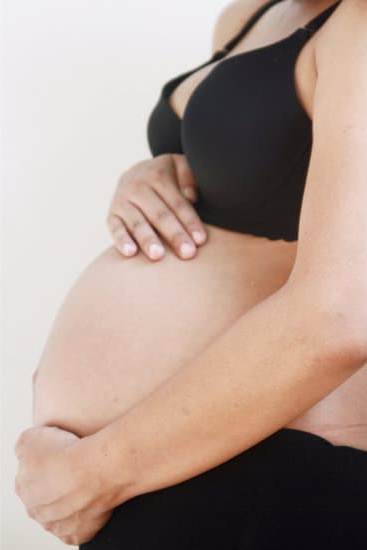How early can you take a pregnancy test? This question is crucial for many individuals who are trying to conceive or suspect they may be pregnant. Understanding the timing of when to take a pregnancy test can greatly impact the accuracy of the results and guide decisions moving forward. It’s essential to be informed about the factors that influence when is the best time to take a pregnancy test in order to obtain reliable results.
Knowing your menstrual cycle and ovulation patterns plays a significant role in determining when you can accurately take a pregnancy test. The timing of ovulation, fertilization, and implantation all affect when there will be enough hCG (the pregnancy hormone) in your body for a test to detect.
Early signs of pregnancy can also provide clues as to whether it may be too early to take a test or not. Understanding these signs can help individuals make an informed decision about when the best time is for testing.
In this article, we will delve into the various aspects related to taking a pregnancy test, from understanding the menstrual cycle and ovulation, to exploring the different types of tests available, and discussing factors that may impact the accuracy of results. By gaining knowledge on these topics, individuals can make informed decisions about when to take a pregnancy test and seek professional advice if needed.
Understanding the Menstrual Cycle and Ovulation
The menstrual cycle and ovulation play a crucial role in determining when you can accurately take a pregnancy test. Understanding these factors is essential for interpreting the results correctly. The menstrual cycle typically lasts around 28 days, although it can vary from person to person. Ovulation usually occurs around the middle of the cycle, approximately 14 days before the next expected period.
During ovulation, an egg is released from the ovary and travels down the fallopian tube. If sperm fertilizes the egg during this time, it can lead to pregnancy. It’s important to note that sperm can survive in the female reproductive system for up to 5 days. Therefore, if sexual intercourse occurs a few days before ovulation, there is still a chance of conception.
Considering these factors, it is recommended to wait until after you have missed your period to take a home pregnancy test for accurate results. Taking a test too early may result in a false negative due to low levels of hCG (human chorionic gonadotropin) – the hormone produced during pregnancy – not being detectable yet.
However, some sensitive pregnancy tests claim they can detect hCG levels as early as 6-8 days after ovulation. It’s advisable to follow the instructions on the test kit carefully for optimal results.
| Conception Timeframe | Best Time to Take Pregnancy Test |
|---|---|
| Around ovulation (Day 14 of Cycle) | After missed period for most accurate result |
| A few days before ovulation | Wait at least one week after conception or missed period |
Early Signs of Pregnancy
Signs and Symptoms to Watch For
Before deciding when to take a pregnancy test, it’s important to be aware of the early signs and symptoms of pregnancy. These can vary from person to person but may include nausea, fatigue, breast tenderness, frequent urination, and mood swings. Some women may also experience implantation bleeding, which can be mistaken for a light period. Paying attention to these signs can help you determine if it’s time to take a test.
Timing and Observation
While some women may experience these symptoms as early as a week after conception, others may not notice any changes until several weeks into their pregnancy. It’s essential to observe your body closely and track any unusual physical or emotional changes. Remember that different factors like stress, illness, or medication can also mimic pregnancy symptoms, so it’s best not to rely solely on these signs without confirming with a test.
Managing Expectations
It’s crucial to manage your expectations when looking out for early signs of pregnancy before taking a test. Not all women will experience the same symptoms, and some may have no indicators at all in the beginning stages. If you suspect you might be pregnant based on possible symptoms but receive a negative result on a home test, don’t lose hope.
Sometimes it takes longer for the hormone levels detected by pregnancy tests to show up accurately. Be patient and consider retesting in a few days or consulting with a healthcare provider for further guidance.
Types of Pregnancy Tests Available
When it comes to confirming pregnancy, there are various types of pregnancy tests available, each with its own advantages and differences. The most common types of pregnancy tests include urine tests and blood tests.
Urine Tests
Urine tests are typically the most commonly used type of pregnancy test due to their convenience and accessibility. These tests can be easily found at drugstores and can be taken in the comfort of your own home. Urine pregnancy tests work by detecting the hormone hCG (human chorionic gonadotropin) in your urine, which is produced during pregnancy.
Blood Tests
Blood tests for pregnancy, on the other hand, are conducted at healthcare provider offices or clinics. There are two types of blood tests for pregnancy: qualitative hCG blood test and quantitative hCG blood test.
Qualitative blood tests confirm the presence of hCG in the blood, while quantitative blood tests measure the exact amount of hCG in the bloodstream. Blood tests are more sensitive and can detect lower levels of hCG earlier than urine tests, making them more accurate for early detection.
Understanding the differences between urine and blood pregnancy tests can help individuals decide which option may be best suited for their needs. While urine tests provide quick results at home, blood tests offer higher accuracy levels and can detect pregnancy much earlier. Ultimately, choosing the right type of pregnancy test depends on personal preferences and individual circumstances when considering how early you can take a pregnancy test.
How Early Can You Take a Home Pregnancy Test
Taking a home pregnancy test is a pivotal moment for individuals hoping to find out if they are expecting. The question of how early you can take a pregnancy test is crucial in ensuring accurate results. Understanding the menstrual cycle plays a significant role in determining the earliest possible time to take the test. Typically, most over-the-counter home pregnancy tests claim to provide accurate results as early as the first day of a missed period.
However, some tests are more sensitive and may be able to detect pregnancy hormones even earlier, sometimes as soon as 4-5 days before your anticipated period. These early detection tests are designed to detect lower levels of the hormone hCG (human chorionic gonadotropin) in urine.
It’s important to note that testing this early may increase the likelihood of receiving a false negative result due to low hormone levels, so it’s recommended to wait until closer to your expected period date for more reliable results.
In addition to understanding when you can take a home pregnancy test, it’s also essential to follow the instructions carefully. Using the first urine of the day is often recommended since it tends to have higher concentrations of hCG. It’s advisable to wait at least a week after a missed period before testing for better accuracy.
If there is any uncertainty about the results or if symptoms persist despite a negative test, consulting with a healthcare provider is always wise. Remember, each individual’s body is different, so what works for one person may not apply universally.
| Types of Pregnancy Tests | Earliest Possible Detection Time |
|---|---|
| Standard Home Pregnancy Test | First day of missed period |
| Early Detection Home Pregnancy Test | 4-5 days before anticipated period |
| Blood Test (Quantitative hCG) | 7-12 days post conception |
Factors That May Affect the Accuracy of a Pregnancy Test
When it comes to taking a pregnancy test, there are various factors that can affect the accuracy of the results. Understanding these variables can help individuals make informed decisions and interpret their test results correctly. Here are some factors to consider:
- Timing: One of the key factors that can impact the accuracy of a pregnancy test is when it is taken in relation to ovulation. Pregnancy tests work by detecting the hormone hCG, which is produced once a fertilized egg implants in the uterus. It is recommended to wait until after you have missed your period to take a home pregnancy test for more accurate results.
- Quality of the test: Not all pregnancy tests are created equal. Some may be more sensitive than others and able to detect lower levels of hCG in urine. It is important to choose a reputable brand and follow the instructions carefully to ensure accurate results.
- User error: User error can also play a role in the accuracy of a pregnancy test. It is crucial to follow the instructions provided with the test kit, including the timing of when to read the results and how long to wait before checking them.
Other factors such as medications, medical conditions, and even expired test kits can also affect the accuracy of a pregnancy test. If you have any concerns about your results or are unsure about when to take a pregnancy test, it is always best to consult with a healthcare provider for guidance.
Ultimately, understanding these variables that may impact the results of a pregnancy test can help individuals better navigate this process and make informed decisions regarding their reproductive health. By being aware of these factors, individuals can ensure they are taking their tests at an appropriate time and interpreting their results accurately.
When to Consult a Healthcare Provider
When it comes to taking a pregnancy test, knowing when to consult a healthcare provider is crucial for accurate results and proper guidance. While home pregnancy tests are easily accessible and convenient, there are certain situations where seeking professional advice is necessary. Here are some reasons why you should consider consulting a healthcare provider:
- Irregular menstrual cycles: If you have irregular periods or are unsure about when your last period was, it may be challenging to determine the best time to take a pregnancy test. A healthcare provider can help you understand your cycle better and suggest the optimal time for testing.
- History of fertility issues: If you have a history of fertility problems or have been trying to conceive without success, consulting a healthcare provider before taking a pregnancy test is advisable. They can provide guidance on the best approach based on your medical history.
- Experiencing unusual symptoms: If you are experiencing unusual symptoms that may indicate pregnancy, such as severe cramping or abnormal bleeding, it’s essential to seek medical advice before taking a test. These symptoms could be signs of an underlying health issue that needs attention.
In addition to these reasons, it’s important to consult a healthcare provider if you have any doubts or concerns about the accuracy of a home pregnancy test result. Healthcare professionals can provide additional testing options, such as blood tests, which may offer more reliable results in certain circumstances. Remember that timely and accurate information is vital when it comes to early detection of pregnancy for appropriate prenatal care.
Conclusion
In conclusion, knowing how early you can take a pregnancy test is crucial for many women who are trying to conceive or suspect they may be pregnant. Understanding the timing of your menstrual cycle and ovulation can greatly impact when you should take a test to ensure accuracy. Early signs of pregnancy such as missed periods, nausea, and breast tenderness can also help guide you on when to consider taking a test.
When it comes to choosing a pregnancy test, there are various options available from urine tests to blood tests, each with different levels of sensitivity and accuracy. It is essential to know the earliest you can take a home pregnancy test in order to get reliable results. Factors such as hormone levels and the timing of implantation can affect the accuracy of the test, so it’s important to consider these variables.
Remember that if you have taken a pregnancy test and are unsure about the results or experience any unusual symptoms, it’s always best to consult with a healthcare provider. Seeking professional advice can provide clarity and guidance on next steps.
We encourage readers to share their own experiences with taking pregnancy tests, as it can offer support and valuable insights to others in similar situations. Remember, timing is key when it comes to taking a pregnancy test, so staying informed and aware of your body’s signals is essential in this process.
Frequently Asked Questions
How Soon Will a Pregnancy Test Read Positive?
A pregnancy test can read positive as early as 10 days after conception, but for more accurate results, it is recommended to wait until after you have missed your period. This usually happens around 14 days after conception.
What Is the Earliest Pregnancy Test?
The earliest pregnancy tests on the market claim to be able to detect pregnancy hormones in urine as early as 6-8 days after ovulation. However, these early detection tests may not always be reliable and could result in false negatives if taken too soon.
How Soon Will a Pregnancy Test Read Positive Clearblue?
Clearblue, a popular brand of pregnancy tests, offers products that can provide results up to 6 days before the missed period. These tests are highly sensitive and can detect lower levels of hCG hormones but it is important to note that the accuracy of the result increases when you wait closer to the expected period date.

Welcome to my fertility blog. This is a space where I will be sharing my experiences as I navigate through the world of fertility treatments, as well as provide information and resources about fertility and pregnancy.





